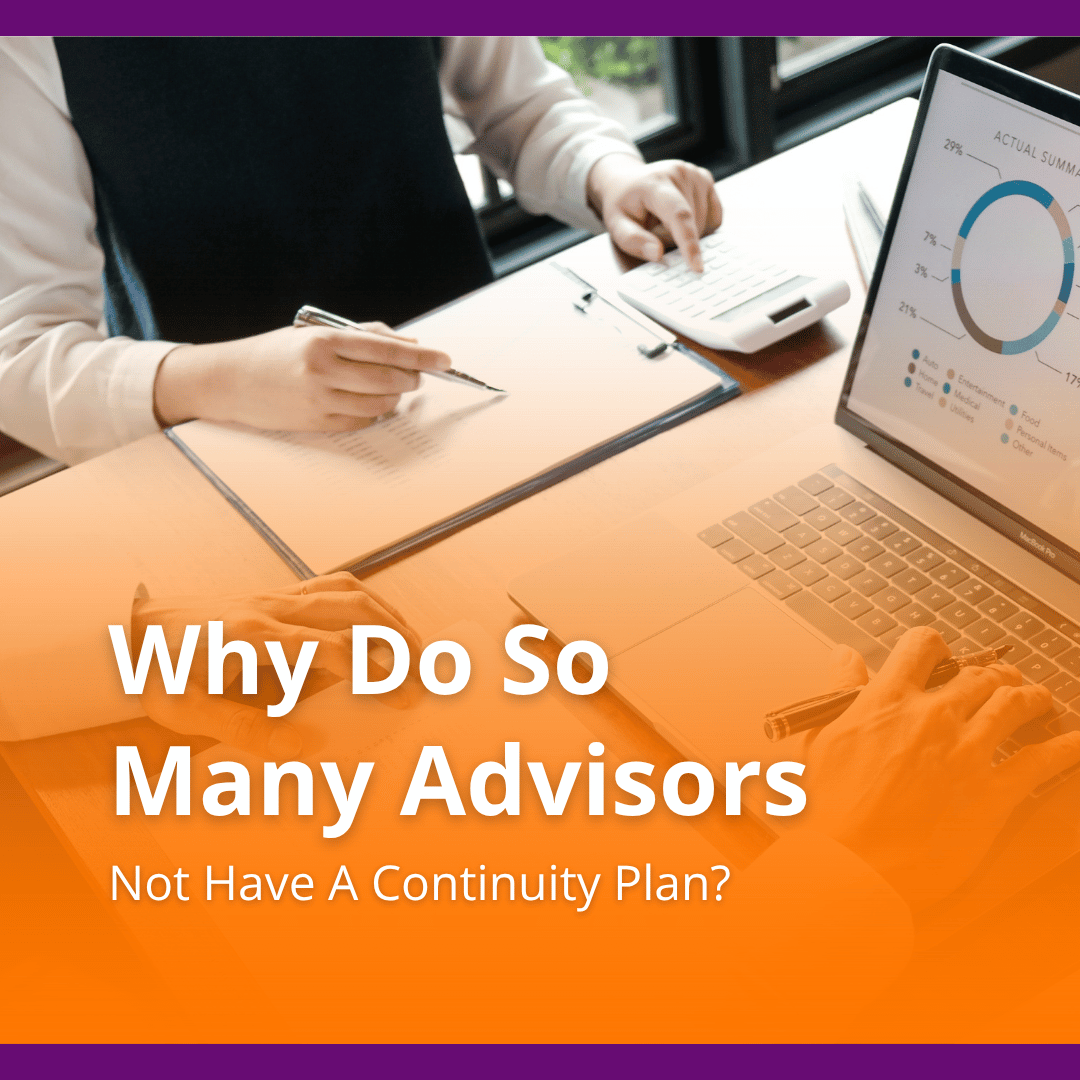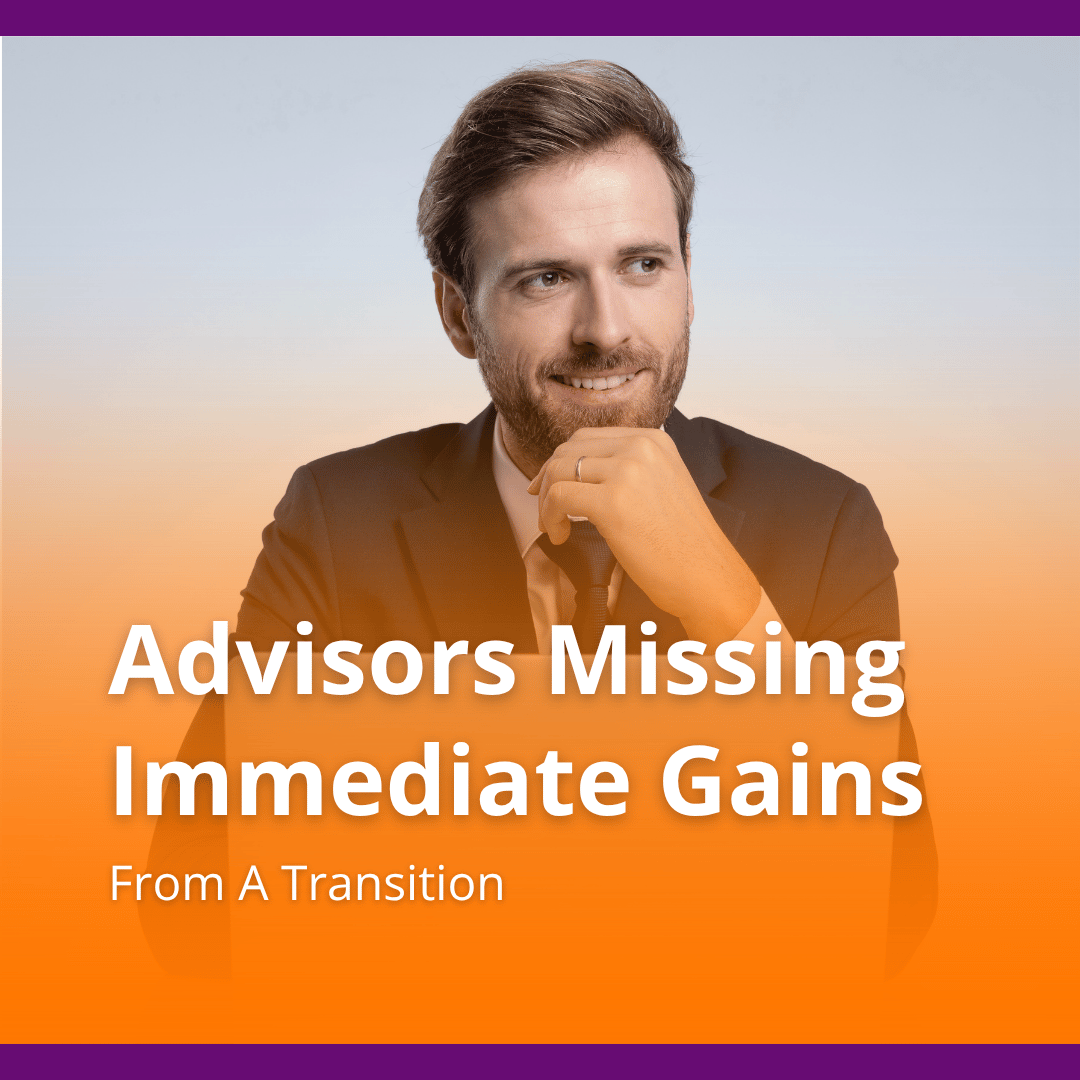2 min read

We’ve heard it all before. The story about the cobbler’s children having no shoes. When it comes to financial advisors the story is the same. They spend their careers helping clients not only plan and prepare for their ideal future, but also for the unexpected events that could happen. Yet when it comes to protecting their own future and the future of their practice, advisors are still walking around shoeless, metaphorically speaking.
The uncertainty and turmoil of the pandemic wasn’t enough to push the statistics higher. Less than a third of advisors have a continuity plan. This is in spite of the fact that many broker dealers and custodians are actively telling their advisors to get one in place. Why is this the case?
The Myth of “Not Enough Time”
Some advisors know they need to have a continuity plan but feel they don’t have enough time to create one. Advisors are busy, and the turmoil of recent markets and the pandemic have meant even higher demands on their time by clients and adjusting to remote work. But just like anything that is critically important, you must make the time. Luckily, it’s largely only an upfront investment of time. Once it is done it needs only be updated if your practice has undergone tremendous change, such as bringing on a new advisor or acquisition. You’re not adding another ongoing task to your daily to-do’s, just one very important one now that will provide you with a level of peace of mind that can’t be quantified.
The Myth of “When I’m Older”
Many younger advisors falsely believe that they don’t need a continuity plan for unexpected death and disability until they are older. In our experience, we have seen advisors as young as their early forties suddenly suffer a debilitating stroke or pass unexpectedly. Youth does not make one immune to death and disease. If you have equity in your practice, no matter how old you are, you need to have a plan in place to ensure not only the continuity of your practice, but also ensure that your family’s needs are met.
The Myth of “It’s Too Expensive and/or Too Complicated”
Many advisors falsely assume that a continuity plan is an expensive, complicated, and cumbersome endeavor. However, if you work with a succession expert, many times they have turnkey services that make it easy and cost effective to develop a continuity plan for your practice. Also, by leveraging a consultant, versus pulling a template from the internet or your broker dealer, you can ensure that the plan is customized to meet your unique needs and circumstances. No matter what myths are holding you back from having a continuity plan, the bottom line is that it is irresponsible to not have one. As an advisor who spends their career teaching people how to plan and prepare for the unexpected, you too must plan for the unexpected to happen to you and your practice. There are plenty of resources out there to help you develop a plan quickly and easily. There are no excuses for not having one anymore.

Todd Doherty
About the Author: Todd Doherty
Todd Doherty serves as Vice President for Advisor Legacy, where he leads advisors through the full M&A lifecycle—readiness, valuation analysis, buyer/seller matching, due diligence, and post-close integration. With more than 15 years in senior roles at financial advisory firms and hands-on ownership experience, Todd brings an operator’s lens to every engagement. His writing focuses on practical ways to boost enterprise value, structure win-win deals, and avoid execution risk. Todd collaborates closely with the firm’s valuation, lending, and legal partners to help advisors make confident, data-driven decisions.
Subscribe
Receive timely articles, tip sheets, events, and more right in your inbox.

How to Know If You’re Emotionally Ready to Sell Your Advisory Practice
You have pictured the day you sell your advisory practice. The deal closes. The pressure lifts.

The Strategic Exit: Turning a Business Sale Into a Legacy Event
Selling a company is often the largest financial event of a business owner’s life. Yet most exit conversations still revolve around valuation and...

Key Employee Retention During a Business Sale: What Smart Sellers Get Right
Are you preparing to sell your business with a team you want to keep intact? Then you’re already thinking ahead. The moment a sale is in motion, your...





.png)
